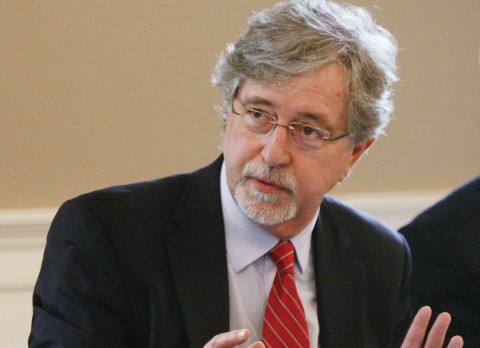Teaching theology in anxious times
“In God’s world, there are always new possibilities—some of which reside in things we find threatening.”

Douglas Ottati teaches at Davidson College; previously he taught for many years at Union Presbyterian Seminary. His new book, A Theology for the Twenty-First Century, is a systematic theology that mines deep theological traditions and applies them to the contemporary moment. The capaciousness and humility of Ottati’s theological project reveal his indebtedness to some of the Christian tradition’s most compelling teachers.
Tell us about your background.
My father was from Brazil and was Roman Catholic, and my mother was from a Lutheran family in Ann Arbor, Michigan. We ended up being Presbyterian. My mom taught Sunday school, and we went to church. My dad would stop at the deli on the way home, and we would argue about the sermon over sandwiches. Now I think that if you can preach a sermon that’s clear enough for people to argue about, you’ve got them where you want them.




